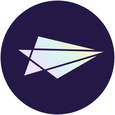About to graduate? Here's how to optimize your job search
Roughly one-fourth of graduates leave college with jobs in addition to diplomas. The rest usually find positions within six months. If your own graduation is approaching, here are tips to help you land a job sooner rather than later.
Be proactive and follow up
You wouldn't take an exam without studying, so don't start your job search without doing research. Begin by making a list of the top 10 companies you want to work for.
"Build your list by deciding the size of the company you want to work for, the type of company and industry you want to be in, and where you'd like to be geographically," says Joanne Espinoza, college recruiting manager at Leidos.
Once you have your list, start making connections within those companies. When you apply for positions, apply for several at a time and seek feedback from your new connections.
Do an internship, or five
Internship experience increases your chances of landing a full-time job. Even if you’re a senior, it’s never too late — a single internship can make the difference.
"I only did one but I learned how to be resourceful and get things done on time," says Sean P., a junior cybersecurity analyst. "It helped me in my job because you can't know everything. Being resourceful and managing your time are key."
Leidos, a science and technology solutions leader in national security, health, and infrastructure, hires almost 200 interns annually. Many of these interns go on to full-time jobs with the company after graduation.
"Over the past three years, between 40-to-50 percent of our interns have received job offers," Espinoza says. "Internships, at Leidos or elsewhere, help you figure out the parameters for your job search."
Audit your online activity
Proceed with caution on social media when it comes to your job search. Keep posts clean and non-controversial. If needed, adjust privacy settings because prospective employers will look you up.
"I don't post anything that a hiring manager may have qualms about," says Alan L., a Leidos billing analyst.
It's also a good idea to increase your usage of professional sites such as LinkedIn or Glassdoor.
"LinkedIn use has skyrocketed among college students the last few years," Espinoza says. "I love it when students contact me and I do my best to be a helpful resource."
Treat your LinkedIn profile like a cover letter and résumé that everyone sees and use the platform to build a professional identity.
"I went on LinkedIn and liked the pages of local companies I was interested in working for," says Trevor S., an associate distribution engineer. "It was worth it because recruiters started contacting me."
"I used LinkedIn to contact alumni from my school and gather information about companies of interest," says Preeti R., a consultant with Leidos.
Other sites, such as Glassdoor, can provide insight on company culture and career outlooks.
"Glassdoor helps, though it’s not a guarantee by any means," says Alan. "Prospective or current employees share their experience with the hiring process and sometimes even mention the exact questions they were asked."
Take the search offline
Believe it or not, there are several things you can do offline to help your search. For example, seize opportunities to attend campus career events, local job fairs, or company information sessions, and talk to everyone.
"I came up with 3-5 good qualities about myself and prepared short 'stories' that demonstrated them," says Preeti. "These stories highlighted times in my work and academic life when I overcame obstacles to succeed or helped provide good examples of my teamwork, leadership, and creativity."
While you still can, use the career services office at your university. Career staff can conduct mock interviews, help critique résumés, and provide tips on how to find jobs.
"Take advantage of all the things that colleges set up. Find out when companies will be on-site and carve time out of your day to meet them," Espinoza says. "Collect as many cards and shake as many hands as possible."
Friends and family members can also be a good resource. Whether it's a classmate who's starting a job right after graduation or a relative at one of the companies you’re targeting, start creating and tapping into your network of contacts.
Have realistic expectations
During your search, be targeted but avoid looking for the "perfect" job. This will likely be your first position in a long and rewarding career — you just need to find a good job to get you in the door.
"I applied for about a dozen different positions that fit my skill set and were at companies where I knew what they supported or worked on," says Sean. "I graduated at the end of May 2015 and had an offer in writing by mid-June."
You may find an opening that you're a perfect fit for and decide to put all your energies into getting that job. But try not to get overconfident; your chances of landing a job are much better if you apply for several. Get into a routine where you're viewing and applying for at least a handful of jobs every week.
Stay poised, prepared, and professional
Take every interview seriously and show it by arriving prepared and on time. Research the company and the people who will be interviewing you.
"I prepared by coming up with questions that an interviewer might ask, and then answered them, almost like studying for a test or learning lines for a play," says Justin W., a junior intelligence analyst.
"I did several mock interviews with a friend who works in a corporate setting and knew the best questions to ask. I got asked almost every question we went over, so I felt prepared," says Lacey N., a project development administrator. "I also videotaped myself because it's helpful to critique from the other end."
While you should have prepared responses to commonly-asked questions, you don’t want to sound scripted. Conversely, use what you learned from researching to prepare questions for the interviewer.
Finally, exhibit your professionalism in both appearance and behavior. Dress appropriately, display good posture, and speak clearly. Make sure you have email addresses for all interviewers and follow-up with a thank you note within 24 hours.
Click here to browse current openings at Leidos




